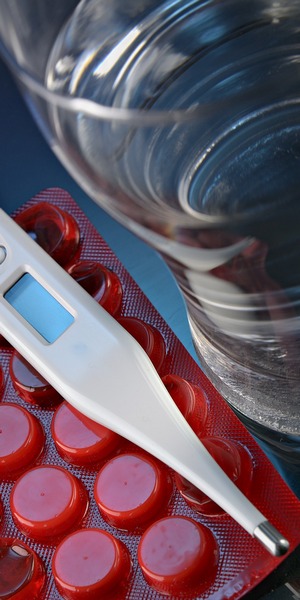How Long to Wait After a Nosebleed to Sleep: Find It Now

Having a nosebleed can be a frustrating and inconvenient experience. It can also be alarming, especially if it’s the first time you’ve had one. But how long do you need to wait after a nosebleed to sleep?
The answer depends on a few factors, including the severity of the nosebleed and your overall health. In general, however, it’s best to wait at least 30 minutes before going to bed. This will give your nose time to stop bleeding and clot properly.
Why Should You Wait?
There are a few reasons why you should wait to sleep after a nosebleed. First, lying down can increase the risk of the bleeding starting again. This is because gravity can cause the blood to pool in the back of your throat. Second, sleeping can make it difficult to breathe through your nose, which can further irritate the blood vessels and make the bleeding worse. Finally, sleeping can make it difficult to monitor the bleeding and make sure it has stopped completely.
What If I Need to Sleep?
If you absolutely need to sleep after a nosebleed, there are a few things you can do to reduce the risk of complications. First, prop yourself up with pillows so that your head is elevated. This will help to keep the blood from pooling in the back of your throat. Second, apply a cold compress to your nose to help reduce the bleeding. Finally, avoid sleeping on your side or stomach, as this can also increase the risk of bleeding.
How to Prevent Nosebleeds
There are a few things you can do to prevent nosebleeds:
- Avoid picking your nose. This is the most common cause of nosebleeds;
- Don’t blow your nose too hard;
- Use a humidifier in your home to keep the air moist;
- Avoid strenuous activity, especially in hot weather;
- If you have a cold or allergies, take over-the-counter medications to relieve congestion;
- If you have a history of nosebleeds, talk to your doctor about other preventive measures;
- What to Do If You Have a Nosebleed
If you have a nosebleed, here are the steps to take:
- Sit up straight and lean forward slightly. This will help to keep the blood from flowing down the back of your throat;
- Pinch the soft part of your nose between your thumb and index finger for 10 minutes;
- Apply a cold compress to your nose;
- If the bleeding doesn’t stop after 10 minutes, seek medical attention.

The Impact of Nosebleeds on Sleep
In addition to the physical discomfort and inconvenience of a nosebleed, it can also have a significant impact on sleep. This is because nosebleeds can make it difficult to breathe through the nose, which can lead to a number of problems, including:
- Difficulty falling asleep;
- Frequent waking up during the night;
- Restless sleep;
- Morning headaches.
These problems can be caused by a number of factors, including:
- The pooling of blood in the back of the throat, which can irritate the throat and make it difficult to breathe;
- The inflammation of the nasal passages, which can make it difficult to breathe through the nose;
- The anxiety and stress caused by the nosebleed, which can make it difficult to relax and fall asleep;
- How to Minimize the Impact of Nosebleeds on Sleep.
There are a few things you can do to minimize the impact of nosebleeds on sleep:
- Treat the nosebleed as quickly and effectively as possible. This will help to reduce the amount of blood that is lost and the amount of inflammation that occurs;
- Prop yourself up with pillows so that your head is elevated. This will help to keep the blood from pooling in the back of your throat;
- Use a humidifier or saline nasal spray to keep your nasal passages moist. This will help to reduce inflammation and make it easier to breathe;
- Avoid strenuous activity or exercise before bed. This can increase the risk of a nosebleed;
- If you are having trouble sleeping, talk to your doctor. There are a number of medications or treatments that can help to improve sleep quality.
Comparison Table of Nosebleeds and Sleep
| Factor | Nosebleed | Sleep |
|---|---|---|
| Cause | Various factors, including dry air, picking the nose, and vigorous nose blowing | Various factors, including the pooling of blood in the back of the throat, inflammation of the nasal passages, and anxiety and stress |
| Symptoms | Bleeding from the nose, difficulty breathing, and anxiety | Difficulty falling asleep, frequent waking up during the night, restless sleep, and morning headaches |
| Treatment | Pinching the nose, applying a cold compress, and seeking medical attention if the bleeding does not stop | Treating the nosebleed, sleeping with the head elevated, and using a humidifier or saline nasal spray |
| Impact on sleep | Can make it difficult to breathe through the nose, which can lead to a number of sleep problems | Can make it difficult to fall asleep, wake up frequently during the night, and feel restless and tired |
How to Prevent Nosebleeds
Nosebleeds are a common problem that can be prevented by taking some simple steps. Here are a few tips:
- Avoid picking your nose. This is the most common cause of nosebleeds;
- Don’t blow your nose too hard. This can irritate the blood vessels in your nose and cause them to bleed;
- Use a humidifier or saline nasal spray to keep your nasal passages moist. This will help to prevent the blood vessels from drying out and becoming more likely to bleed;
- Avoid strenuous activity, especially in hot weather. This can raise your blood pressure and make you more likely to have a nosebleed;
- If you have a cold or allergies, take over-the-counter medications to relieve congestion. This will help to reduce the pressure in your sinuses, which can also help to prevent nosebleeds;
- If you have a history of nosebleeds, talk to your doctor about other preventive measures. There are a number of medications or treatments that can help to reduce your risk of nosebleeds.
Conclusion
Nosebleeds are a common problem that can be prevented by taking some simple steps. By following the tips in this article, you can reduce your risk of nosebleeds and improve your overall health and well-being.
In addition to the information provided in the previous sections, this conclusion provides additional information on the importance of prevention and the benefits of taking steps to reduce your risk of nosebleeds.
FAQ
In general, it is best to wait at least 30 minutes before going to bed after a nosebleed. This will give your nose time to stop bleeding and clot properly.
Lying down can increase the risk of the bleeding starting again. This is because gravity can cause the blood to pool in the back of your throat. Sleeping can also make it difficult to breathe through your nose, which can further irritate the blood vessels and make the bleeding worse. Finally, sleeping can make it difficult to monitor the bleeding and make sure it has stopped completely.
If you absolutely need to sleep after a nosebleed, there are a few things you can do to reduce the risk of complications. First, prop yourself up with pillows so that your head is elevated. This will help to keep the blood from pooling in the back of your throat. Second, apply a cold compress to your nose to help reduce the bleeding. Finally, avoid sleeping on your side or stomach, as this can also increase the risk of bleeding.








